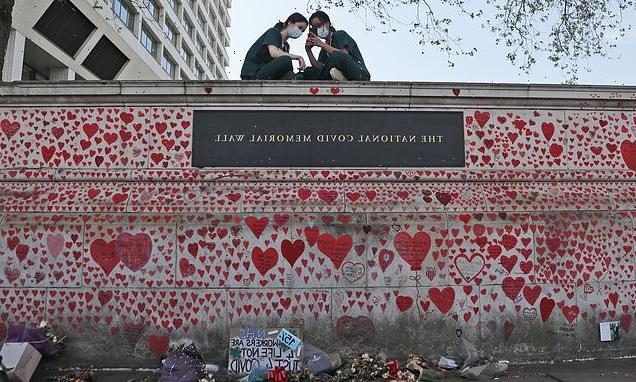Long-awaited Covid-19 inquiry faces fresh delays as secrecy row emerges over civil servants’ names being redacted from documents
- Thousands of personal details are being redacted from hundreds of documents
- Lawyers of bereaved families say this is taking ‘disproportionate’ amount of time
- Read more: Long-awaited probe will delve into No10’s pandemic failings
The long-awaited Covid-19 inquiry faces further delays due to a secrecy row over civil servants’ names being removed from documents.
Thousands of personal details are having to be redacted from hundreds of pages of submissions, a preliminary hearing was told yesterday.
These include the names of low-ranking junior officials who were not in decision-making roles during the pandemic.
However, lawyers representing bereaved families say blanking out this information is taking a ‘substantial and disproportionate’ amount of time.
Chairman Baroness Heather Hallett was also asked to consider postponing the public inquiry by up to four weeks to allow lawyers more time to get through the paperwork.
The long-awaited Covid-19 inquiry faces further delays due to a secrecy row over civil servants’ names being removed from documents. Pictured: NHS worker receives the first dose of the Covid-19 vaccine
This could mean the inquiry beginning in June rather than May.
Documents put before an inquiry are shown to participants in advance – a process known as disclosure – which allows time for them to be read before the hearing.
However, Hugo Keith, KC, counsel for the inquiry, said that in this case ‘literally thousands of manual reductions’ were having to take place.
Pete Weatherby, KC, counsel for the Covid Bereaved Families for Justice group, said redacting civil names prior to disclosure was slowing the process down.
The human rights barrister called on the inquiry’s legal team to leave removal of such details until after disclosure had taken place.
He told the hearing he was ‘unaware of any other inquiry’ where such redactions took place before disclosure.
Mr Weatherby, who has previously represented families during the Hillsborough and Grenfell inquiries, added: ‘It is apparent that this issue, this redaction of the names of junior staff, is taking up a disproportionate and substantial amount of time of his [Mr Keith’s] team and the knock-on effect is it is seriously impeding the disclosure of other material to core participants.’
It is not uncommon for large-scale public probes to take years to complete.
The Chilcot Inquiry, which analysed the UK’s role in the Iraq war, took more than seven years to conclude, from when it was first announced in 2009.
Meanwhile the Bloody Sunday Inquiry – first established by Tony Blair’s government in 1998 – did not deliver its final report until June 2010.
During yesterday’s virtual hearing Baroness Hallett, said she was ‘sympathetic’ to requests to delay the start of the first public hearing.
She added: ‘I do understand your concerns, I hope that’s been apparent this morning, about the proposed start date and, of course, disclosure.
‘In my view, as seems to be the view of all the participants, far better [to] delay the start by up to four weeks, than start early and then not be ready and not be effective.’
The retired judge said she would make a decision on the start date as soon as she could.
Source: Read Full Article


